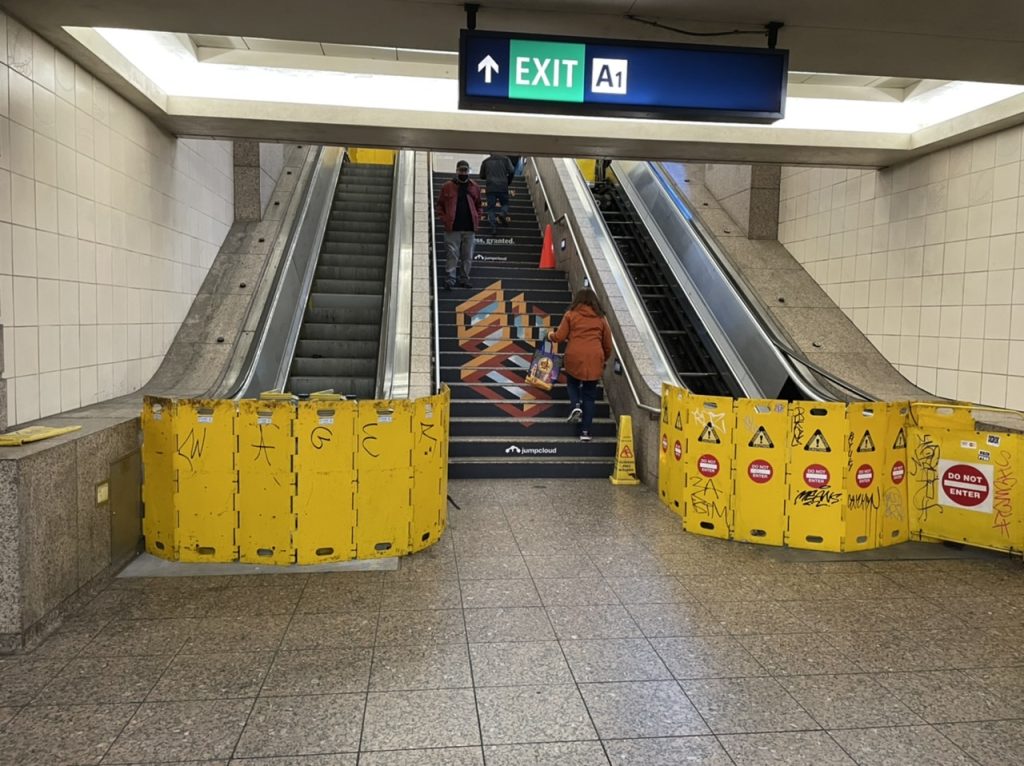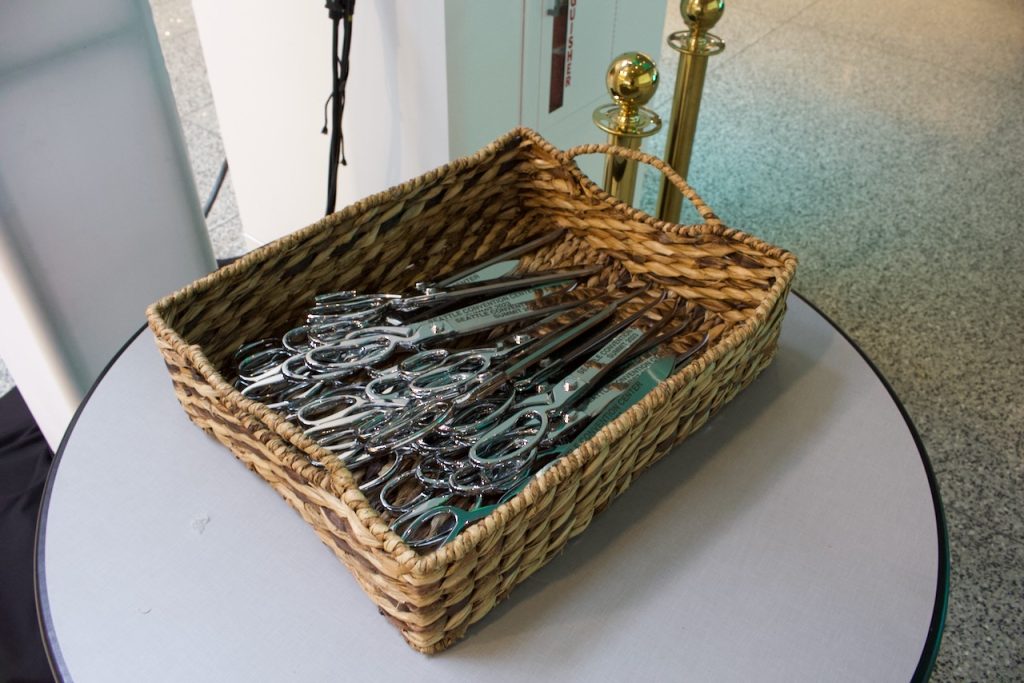Next week is standardized testing at the kiddos’ school. The normal seven-class-a-day schedule will be reorganized to allow morning and afternoon blocks long enough to take the 3 to 4 hour tests. The kids have stockpiled gum and selected small stuffed animals and stress balls to keep them company. Anxiety abounds. No one — teachers, kids, and parents — think the tests do anything useful.
At the same time Seattle Public Schools (SPS) and several other districts in the region are preparing to deal with budget shortfalls by closing schools, cutting programs, and reducing staff. A fury went up this week as SPS got a report saying they could save cash by scheduling a half dozen schools to open earlier and reduce bus routes. No one — teachers, kids, and parents — think any of this is a good idea.
These are both obviously school-related issues, but they have a deeper connection. The compulsion to test the kids to death comes from the concept that the teachers aren’t doing enough work. The tests are justified to figure if the taxed citizens of Seattle are “getting what we pay for” when we hand teachers their salaries, same as much of the district’s micromanaging. The bus routes are seeking efficiencies in staffing at the costs of convoluted, longer routes. Both are pretending to be frugal with taxpayer money at the cost of children’s time.
It would be easy to say that it’s impossible to waste a child’s time when they spend so much of it with a finger up their nose and have no concept of a schedule. However, a better perspective is to ask why Seattle, as one of the richest cities in the world, is penny-pinching so hard that it’s leaving marks on even the littlest kids.
It’s a level of frugality that is malignant and poisonous. And schools are not the only place it shows up. Toxic frugality is as Seattle as failed light rail escalators and crumbling bridges.

The list ain’t just vertical conveyances. Seattle’s city council nixed moving traffic enforcement out of the police department because the cost was too high in dollars, regardless of the cost in life. For almost a decade, Councilmember Kshama Sawant has loudly called out how devastating austerity budgeting has been on Black and brown communities in Seattle. Downtown groups are arguing to get a holiday from the progressive taxes that are paying to fund the services they’re begging for. Frugality is literally a leadership principle at Amazon, who decided to lay off thousands of workers while posting $3.2 billion in profit over the first quarter of 2023. The Ebenezer Scrooge level of stinginess is getting worse because the long-rumored recession is always three months away.
Seattle is the capital of toxic frugality and performative cost savings pageantry. Part of it is the region’s passive aggressive nature. Why tell someone directly they are doing wrong when you can just chide the general enemy of excessive spending? Only the real hate groups like Safe Seattle come out to say they detest the smell and look and experience of homeless people on the street because that statement is mean. But it’s frugal and thereby respectable for a vigilante sweep group like We Heart Seattle to beg the question why the region spends a (ambiguously estimated) billion dollars on the issue.
The other part of Seattle’s foundational frugality is the progressive technocrat mindset. Ever since Al Gore broke an ashtray on Letterman, putting on a face of efficiency has been paramount governance. Projecting frugality is a shield to protect against that Reagan-era “reckless tax and spend Democrats” insult. It’s also been a sword to avoid insulting an opponent’s intelligence or capability because there’s an extensive spreadsheet showing particular metrics are unmet. High-minded technocrats are above the fray of such insults, and here’s the data to show it.
This is supposed to be the paragraph where I say that some frugality is important. Not going to happen. Fiscal responsibility is important because it’s about aligning spending with goals. Fiduciary duty is important because it’s about contracted responsibilities of care and confidence. Frugality is being cheap for cheap’s sake. Frugality is so wrapped in shame and antiquated Puritanism that it doesn’t have a place in governance. It doesn’t have to rise to the Seattle level of toxic frugality to be bad. And it forgets all that useful Puritanism which says usury is bad.

Frugality as a goal gets in the way of actually making things better. There is the obvious failure to spend money on smart investments that will improve lives and save money later. Seattle sure did save about $200 million when it skipped building that metro line back in 1968 and 1970. Now we have the incredibly expensive choking traffic, pollution, and insurmountable housing costs, to show for it.
There’s frugality’s less obvious failure of needing to spend money to make due. Consider the expense of buying cheap shoes. It is a frugal move today avoiding the cost of a nice pair of shoes, but the third time this junk gets replaced, the savings disappears. The region has made due with incredibly expensive alternatives to what should be simple expenses.
Start at the top on this one, where the state’s failure to implement an income tax trickles down to layers of property tax levies. Keeping government offices small means there are fewer staff to pay, but the money still flows to consultants. Sound Transit’s Technical Advisory Group has pointed to a lack of in-house expertise as a cause of cost overruns and construction delays. Being cheap costs a lot of money.
Most of all, there is the hidden cost of frugality. Because it is so tied to morals and shame, frugality is a moving target which undermines all other goals. Frugality is only applied selectively. The money is always there for cops and convention centers. It can be there for children too, if the school board and the city stopped playacting at saving money.
Taking frugality out of public life resets the goals, removing judgmental shame from the budget equation and putting the focus on quality of life things we should be working towards. Such clarity disincentivizes elected officials from performing at budget theater, and demands they write budgets that actually align with the city’s values. Unfortunately, until Seattle’s pinnacle civic virtue of frugality changes, the miserly austerity will continue. Pack your gum and comfort stuffy, because it’s all just standardized tests unless you’ve got a new stadium to ribbon cut.
Correction: An earlier version of the article erroneously stated Amazon had posted $230 billion in profit over the past year, referring to revenue figures. That stat has been replaced with the $3.2 billion Q1 2023 profits figure.
Ray Dubicki is a stay-at-home dad and parent-on-call for taking care of general school and neighborhood tasks around Ballard. This lets him see how urbanism works (or doesn’t) during the hours most people are locked in their office. He is an attorney and urbanist by training, with soup-to-nuts planning experience from code enforcement to university development to writing zoning ordinances. He enjoys using PowerPoint, but only because it’s no longer a weekly obligation.


